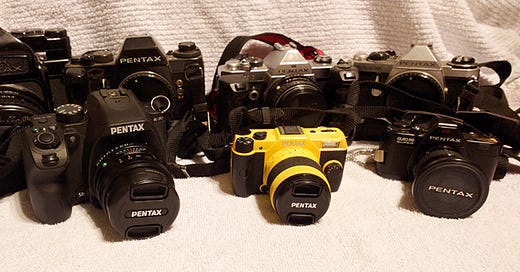An old man turned ninety-eight/He won the lottery and died the next day
It took Fuji Heavy Industries 7 years and more than a billion dollars to build Fugaku. It was named the world’s fastest supercomputer in June 2020 and held that crown for…not even two years. https://en.wikipedia.org/wiki/Frontier_(supercomputer)
It takes Apple 51 minutes to ship that much computing power in just iPhones.
The irony here is that Fuji remembered the Iron Law of Cheap Tech, but failed to follow the logic through to the end. The Iron Law of Cheap Tech is that lots and lots of cheap always overwhelm one big expensive one, no matter how well designed and engineered the latter.
The law takes its name from the early days of the PC era, when the SLED – Single Large Expensive Disk – technology copied from mainframes was run out of business by RAID arrays.
It's simple, really: No matter how fast and reliable a SLED is, an array of a half-dozen or more cheap disks is faster. And if one blows up, so what? There are five more backing it up.
So Fuji built a supercomputer out of ARM chips. When they started, ARM designs were used for the lightweight chips in smartphones.
By the time they were done, Apple was introducing the ARM-based M1 chip.
Web3 wins because it inverts the cloud. There is more computing power in the tens of millions of iPhones than there ever will be in any supercomputer or data center. Then add tens of millions of iPads, and tens of millions of Samsung phones, and tens of millions of Dell laptops…
And 5G and mesh WiFi mean there is more bandwidth in the cloud than can ever make it through the chokepoints needed to support central systems.
Wondering how Fugaku stacks up against the Apple M1?
And Gordon Moore laughs.
Apple introduced the M2 yesterday.
The power of the many will always outweigh the power of the few.
Or the one.
Feola.Foto
My Pentax Family. Back row: Pentax 67 (120 film), LX, MX, ME Super (35mm film)
Front row: K70 (Digital); Q7 (Digital); 110 Super (110 film)
Coming Next
June 9: Thursday News Roundup. June 12: Sunday Reader-Where have you gone, Pete Hamill? The rise and fall of journalists is a microcosm of the fate of the Industrial Age elites. Chains gobbled up publications for economies of scale, then broke the old trade system that produced Hamill, suppressing salaries by replacing pretty much everyone with recent college graduates. The Unintended Consequence of this move was to sever the life-long relationship between the press and the cities, which has proved catastrophic.
And Finally…
Play stupid games, win stupid prizes
Big Tech has been SUCH a great steward of our personal information; let’s hand over our very souls! What could possibly go wrong? Struggle for Web3’s soul: The future of blockchain-based identity. Your whole identity could soon live in ‘Soulbound tokens’ on web3, Ethereum’s co-founder says; SBTs would serve as a permanent record of a person’s achievements—like a social credit system. What’s behind Buterin’s embrace of “soulbound tokens”? Ensuring Ethereum’s dominance? A backlash against NFTs? Creating a better world?





